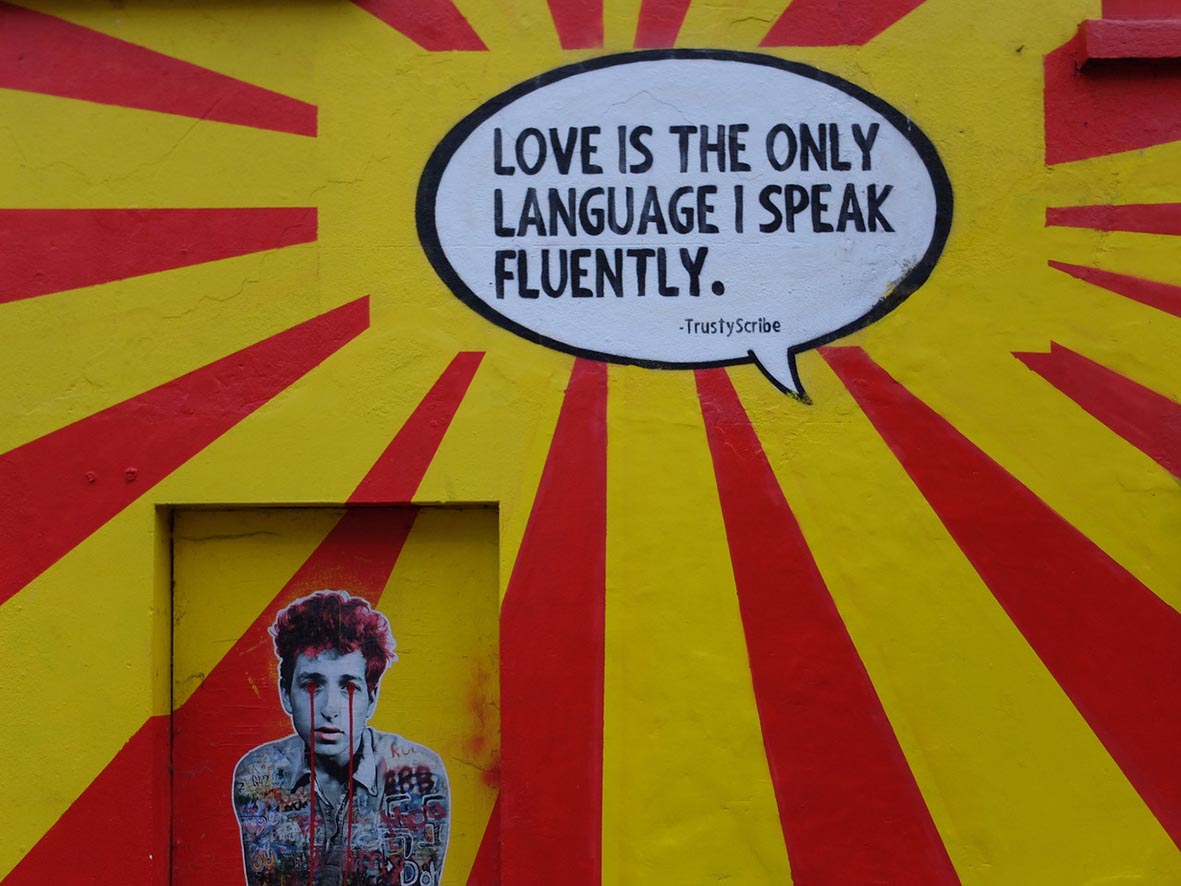01 Jun The Language of Love
 We have been invited by Nora Sorensen to lead two introductory workshops in Blackheath. One is on the theme of grief, the other with a focus on love. I am conscious that these two themes wind together almost inseparably. Love is probably the thing that brings us together, that drives us, that evokes poetry and art to inspire us. “Love is the only language I speak fluently” says graffiti artist Trusty Scribe. On this Brighton wall, there is an image of Bob Dylan by The Postman. I don’t know who gave him tears, but here they sit together – love and loss.
We have been invited by Nora Sorensen to lead two introductory workshops in Blackheath. One is on the theme of grief, the other with a focus on love. I am conscious that these two themes wind together almost inseparably. Love is probably the thing that brings us together, that drives us, that evokes poetry and art to inspire us. “Love is the only language I speak fluently” says graffiti artist Trusty Scribe. On this Brighton wall, there is an image of Bob Dylan by The Postman. I don’t know who gave him tears, but here they sit together – love and loss.
It is easy to confuse the word ‘grief’ with bereavement. While the death of someone close to us is often a huge and devastating experience of grief, there are many other possible reasons to feel pain. Grief is a broad church and can lurk for many reasons past, present and future. All our losses are worthy of receiving our attention; and some experiences of loss or change may be more significant than we realise. The absence of someone or something, or the presence of suffering can alert us to value the things we held or hold dear.
Bereavement is a significant source of grief precisely because it reveals how much we love and miss someone who has died. Similarly, when someone or something becomes beloved to us, the fear of separation or ending may haunt us.
The fear and pain which grief can cause us often makes us keen to keep the lid tightly closed on our feelings. This is often for much needed self-protection at a difficult time, and we may not even realise we have done this. These self-protective mechanisms may have been “our childhood heroes” (as Thomas Hübl calls them). We want to keep safe, and sometimes this comes at a cost to ourselves. In Grief Tending we invite bringing kind attention to these parts of ourselves.
Intimacy, presence and vulnerability are the language of love for me. These are the skills that bring connection – with self and others – for both love and grief. When I am connected to more of myself I notice I laugh more. When I am present, grounded and in touch with my tender emotions, I am also more sensuous, more available for spontaneous fun. Paradoxically, opening up to love can put me in touch with yearning, or the disappointment of the places in me that don’t feel seen and valued.
There is risk in daring to show myself, to express who I am, but it is also exciting. I am on a journey to feel more, to love more and increase my capacity to live compassionately, unhindered by outdated fears. Like going out dancing, Grief Tending can feel like an effort, and requires a little courage, but it always makes me feel better afterwards.



No Comments